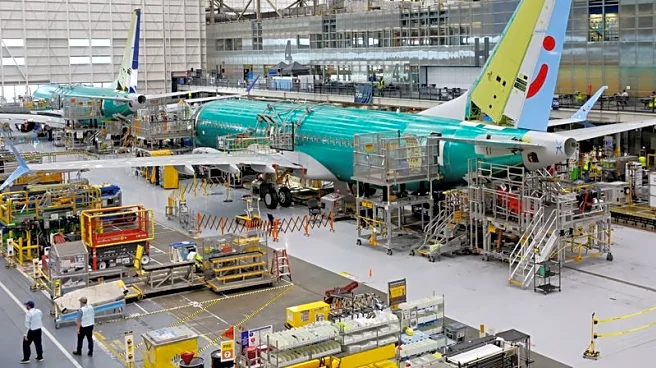What's Happening?
Families affected by the Boeing 737 MAX8 crashes in 2019 presented victim impact statements at a federal court hearing in Fort Worth, Texas. They expressed dissatisfaction with the U.S. Department of Justice's non-prosecution agreement (NPA) with Boeing, arguing that it fails to hold the company accountable for the crashes that resulted in 346 deaths. The families, represented by lawyer Paul Cassell, urged U.S. District Court Judge Reed O’Connor to reject the agreement, which they believe undermines justice and accountability. The hearing included testimonies from family members and experts, highlighting the need for transparency and oversight in Boeing's operations.
Why It's Important?
The hearing underscores the ongoing struggle for justice and accountability in the aftermath of the Boeing 737 MAX8 crashes. The families' challenge to the DOJ's agreement reflects broader concerns about corporate accountability and the role of regulatory bodies in ensuring safety. The outcome of this case could influence future legal proceedings involving corporate misconduct and impact public trust in aviation safety standards. It also highlights the emotional and legal battles faced by victims' families seeking justice for their loved ones.
What's Next?
Judge Reed O’Connor is expected to rule on the matter in due course, which could lead to further legal actions or adjustments to the DOJ's agreement with Boeing. The families continue to seek a meeting with U.S. Attorney General Pam Bondi to discuss their concerns. Depending on the court's decision, Boeing may face additional penalties or be required to implement stricter safety measures. The case may also prompt legislative reviews of aviation safety regulations and corporate accountability standards.










